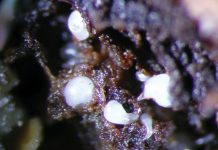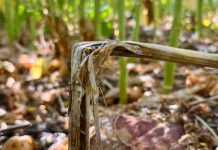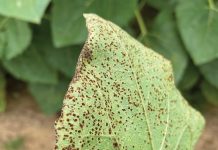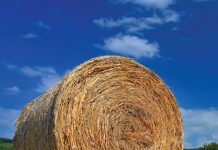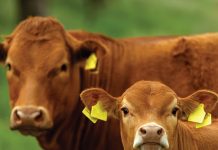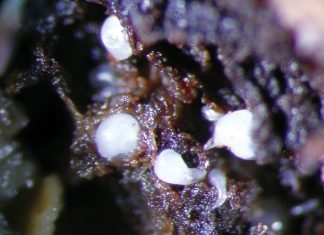Bruce Gibbings from Winterton was awarded first and second position in the category for maize production in the KwaZulu-Natal region in the 2024 Grow for Gold national yield competition, obtaining yields of 16,099 t/ha and 15,867 t/ha respectively.
These excellent yields were realised with a Pioneer conventional hybrid, P1197. This hybrid forms part of their weed management programme. ‘We do not want to rely too much on glyphosate and tend to use different herbicides with different modes of action as part of our weed control management programme to prevent the weeds developing resistance to a particular product.’
His variable input costs were R1 330/ton, or calculated differently, R17 300/ha for this particular hybrid and field. Seed was his most expensive input at R4 600/ha, followed by urea at R3 900/ha.
Weeds remain a tough challenge. ‘In some years we have to spray up to four times before planting to effectively control weeds. We find that planting cover crops really helps in smothering the weeds, thus we have been able to reduce our burndown sprays to two applications in some instances.’
He adds that they usually do about three burndown sprays between the period of the previous harvest and just before planting. ‘We spray a pre-emergent herbicide at planting and another herbicide at about the V4 to V6 development stage of the maize.’
They also planted Pioneer P1225, averaging 13 t/ha. The total average maize yield on the farm for the past season was 13 t/ha. According to Gibbings, he managed to produce 16,4 kg grain/mm of rain if he calculates the grain produced per moisture available.
In total he received 980 mm rain for the season. The major challenge was the fact that they received very little rain between mid-January and mid-March (only 125 mm) during the crucial pollination and grain-fill stages.
‘In our area we have to cope with rust, northern corn leaf blight, grey leaf spot and Phaeosphaeria. We have a preventative spraying programme in an attempt to control disease. We manage it with an application of Nativo at V6 and Miravis Neo at V10. After tasselling we do a third application of Zantara, that usually sees us through to maturity.’
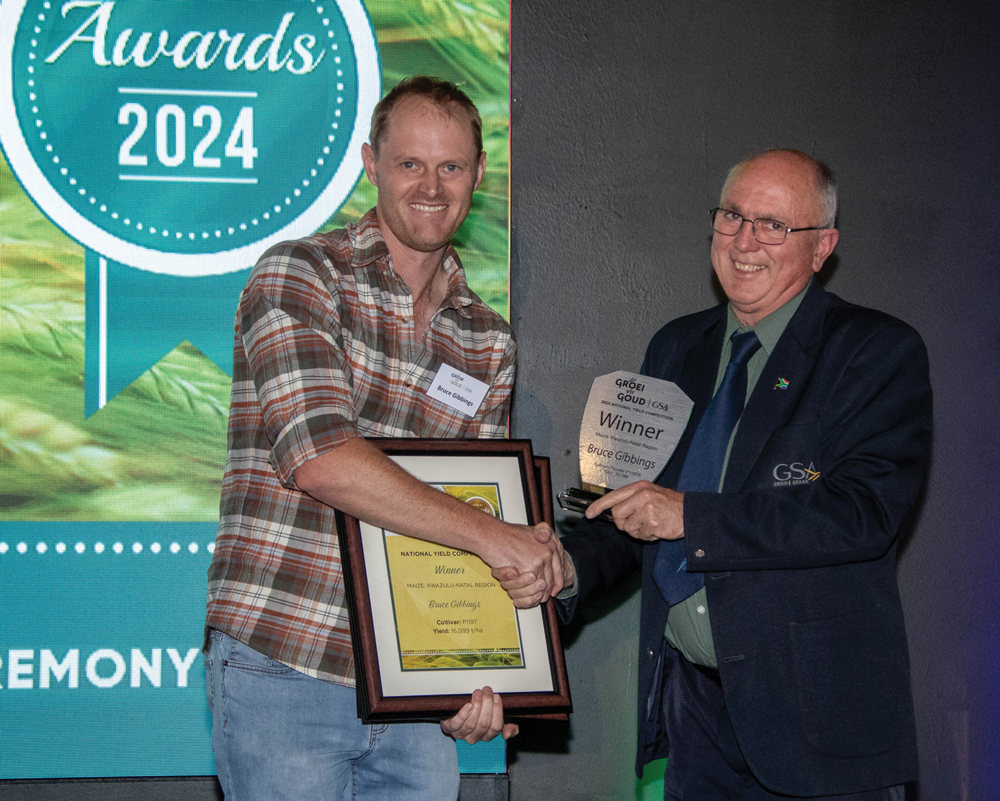
Regenerative farming
Gibbings is part of a regenerative farming group specifically focusing on building up the soil to support sustainable crop farming. They practice no-till and plant cover crops in winter. He says when acidity problems are picked up in the fields, they will apply lime and then disc and plough the lime in to sort out the problem and return to no-till again as soon as possible.
Karate is applied at planting to control cutworm and they do another application at the V6 stage to control stalk borers when they are very young. Depending on the insect pressure, they might
include Coragen at V10 to control stalk borer or false armyworm. ‘Fall armyworm is in our area. We do, however, have effective insecticides for it in case we spot it while scouting.’
They farm on a mix of soils ranging from sandy soils prone to capping to deep red clayey soils that hold moisture very well. ‘We are privileged to farm on very fertile land.’
Their soils are grid-sampled on a hectare basis and sub-soils on every four hectares. They then do variable rate corrections with lime and gypsum according to the soil analysis. He says for him it is far better to add phosphorus with the planter in the band where it is most effective. The acid salts are close to zero and they maintain the pH at around 5,5. They apply a total of 200 N, 15 P, 30 K per annum without counting nutrients from compost, which they apply between 5 and 10 t/ha.
‘Boron management has been an important contributor to yield. Adequate boron is especially important for pollination. Tassel development is much earlier than we may have thought in the past – cut open a maize plant as early as V9, you will be able to see the tassel forming already.’
William Gibbings, his father, is his mentor and has played a huge role in his development as a farmer. ‘I admire my dad tremendously and I am very grateful for his guidance and advice. He has taught me so much,’ he says. Apart from his father, he often contacts Gary Wood and Bernic Botha from Farmers Agri Care. ‘They are my go-to contacts for crop protection. I really appreciate their help.’
His advice to young producers is: ‘Never stop learning. Do not let self-pride control you. Absorb information, learn from others, and identify areas where you can adjust practices and make improvements. It is also important to be able to be flexible and adaptable. You can easily become set in your ways the older you become.’



